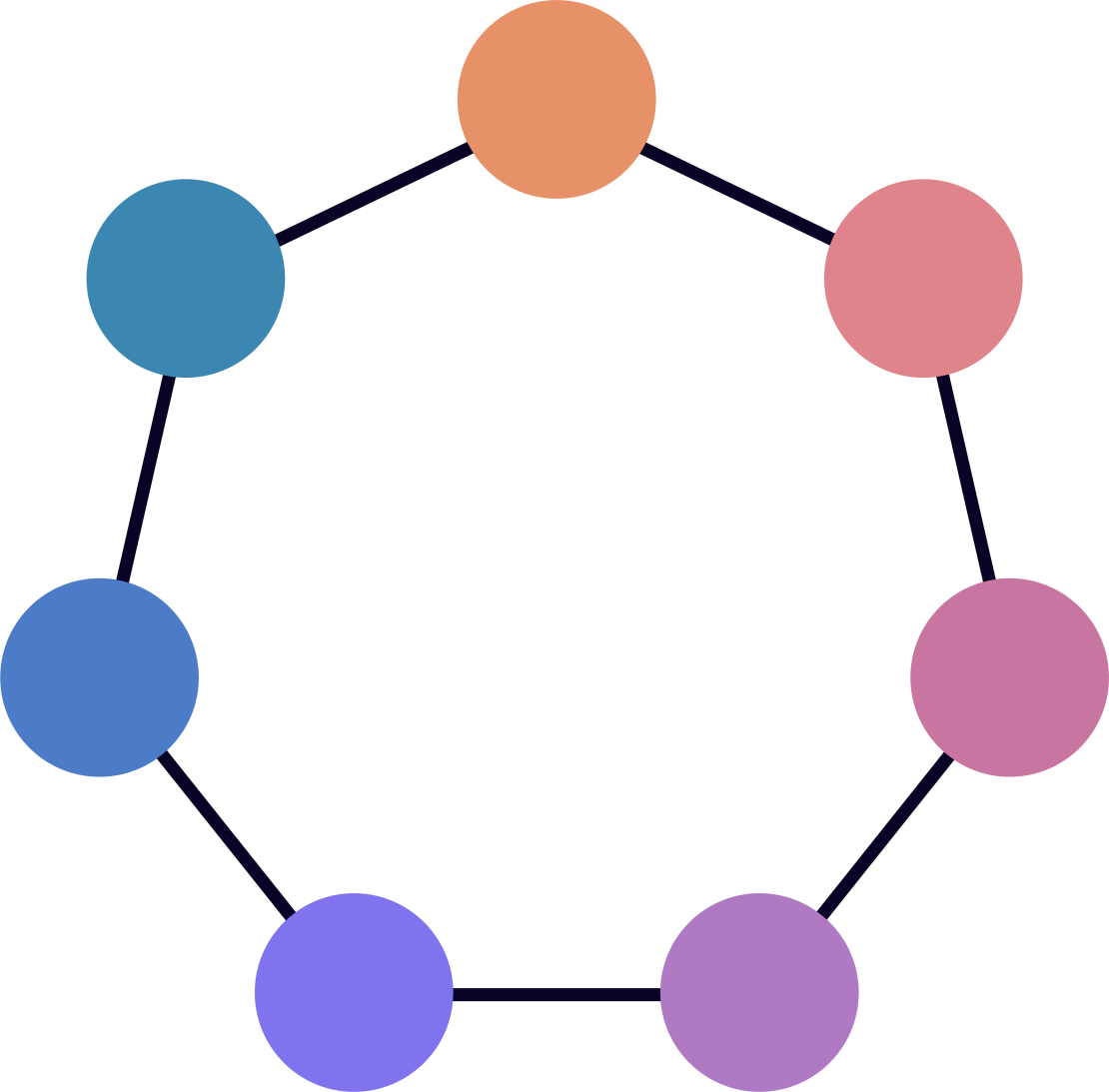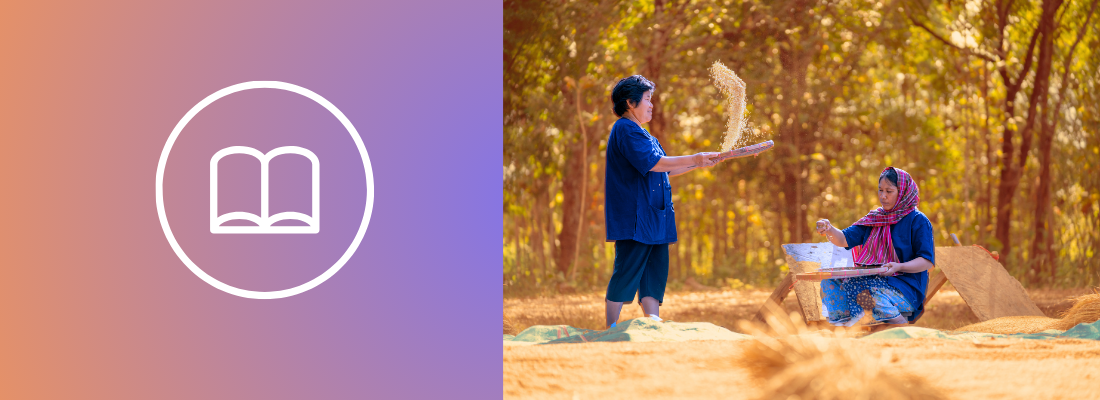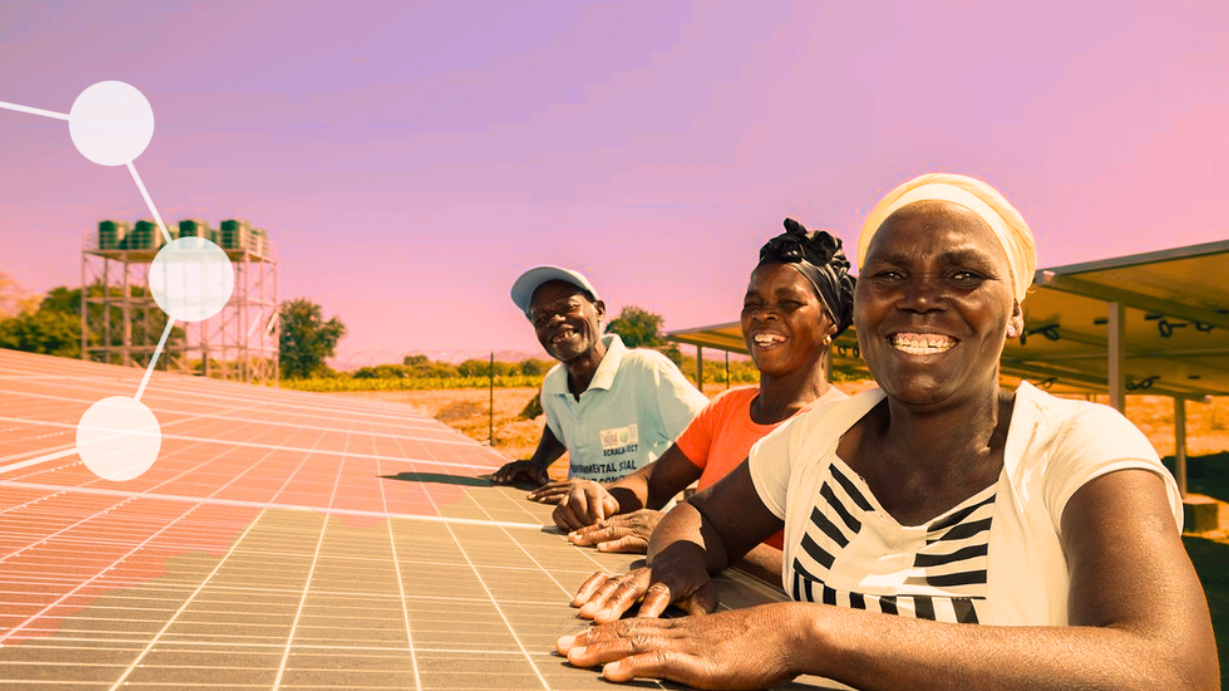


Partners and additional resources
Acknowledgement of partners
UNDP works hand-in-hand with a diverse network of partners at every level, united by a shared commitment to advancing high integrity and sustainable impact. We extend our deep appreciation to all collaborators and contributors whose expertise, insights and dedication have been instrumental in shaping this work.
- Amazon Environmental Research Institute (IPAM)
- Architecture for REDD+ Transactions (ART)
- Bezero Carbon
- Calyx Global
- Climate Focus
- Climate, Law and Policy (CLP)
- Climate and Land Use Alliance (CLUA)
- Consensus Building Institute (CBI)
- Deutsche Gesellschaft für Internationale Zusammenarbeit (GIZ)
- Environmental Defense Fund (EDF)
- Earth Innovation Institute (EII)
- Emergent
- Forest Peoples Programme (FPP)
- Forest Trends
- Global Green Growth Institute (GGGI)
- Gold Standard
- Government of Brazil
- Government of Costa Rica
- Government of Ghana
- Government of Ecuador
- Government of Indonesia
- Government of Norway
- Government of Sweden
- Government of Switzerland
- High Tide Foundation
- Instituto Centro de Vida (ICV)
- Integrity Council for the Voluntary Carbon Market (ICVCM)
- Kawari Fund
- Namati
- Paris Agreement Article 6 Implementation Partnership (A6IP)
- Rainforest Foundation Norway (RFN)
- Rainforest Foundation US (RFUS)
- RECOFTC (The Center for People and Forests)
- Rights and Resources Initiatve (RRI)
- Rotta Moro
- The Nature Conservancy (TNC)
- The Tenure Facility
- UK Government
- UN-REDD Programme
- United Nations Framework Convention on Climate Change (UNFCCC)
- Voluntary Carbon Markets Integrity Initiative (VCMI)
- Verra
- World Bank
- Wocan
*The views expressed in the Toolkit are not necessarily those of collaborators and contributors.
Additional resources
These additional resources bring together a curated collection of high-quality materials from UNDP and its partners on key topics related to high-integrity carbon markets. It features guidance notes, tools, reports and case studies covering basic carbon markets concepts, safeguards, benefit sharing, stakeholder engagement and sustainable development impacts. The page serves as a practical hub for policymakers, practitioners and partners seeking credible, actionable resources to strengthen the integrity and effectiveness of carbon market activities.
UNDP resources
- UNDP Carbon Markets Explainer (UNDP; 2025). Provides a simple introduction to carbon markets for those new to the topic. Also available in French and Spanish.
- Frequently Asked Questions on Carbon Markets (UNDP; 2025). Common questions and answers about carbon markets for those new to the topic. Also available in French.
- Country Guidance for Navigating Carbon Markets (World Bank, A6IP, GGGI, GIZ, ICVCM, UNDP, UNFCCC, VCMI; 2025). This Guidance Document helps (potential) host countries develop a strategic approach for engaging with international carbon markets. It aims to help countries unlock the potential these markets offer to mobilize financing to support climate and wider developmental objectives, while managing risks. It identifies options, evaluates their strengths and weaknesses, and supports informed decision-making.
- Best Practices Guide for Developing VCM Projects in Yucatán (Climate Focus, UNDP, VCMI, State Government of Yucatan; 2025). State-level guidance document for developing high-integrity nature-based solutions (NbS) projects in the voluntary carbon market (VCM) in the state of Yucatán, Mexico. This Guide offers practical guidelines for all phases of the project cycle, from conceptualization and design through to verification and carbon credit issuance. Also available in: Spanish.
- UNDP’s High-Integrity Carbon Markets Initiative (UNDP; 2023). Describes UNDP’s efforts to establish robust principles and guidelines that ensure high integrity across all types of carbon markets. See also, Frequently Asked Questions about the Initiative.
- Voluntary Carbon Market (VCM) Primer (Climate Focus, UNDP; 2023). Provides an overview of the VCM to the governments of countries that are or are likely to be hosting VCM projects. The Primer increases government understanding around strategic engagement with the VCM. The target audiences of the Primer are policymakers in host countries, advisors to policymakers and other public sector actors engaging with the VCM. Each section is available in English, Bahasa Indonesia, Spanish, French and Portuguese at the same link.
- Carbon Markets Access Toolkit (Climate Focus, UNDP, VCMI; 2023). Provides step-by-step guidance to help policymakers in emerging markets and developing economies decide how best to generate and sell carbon credits to access climate finance, catalyse innovation and de-risk investment.

Partner resources
General
- The State and Trends of Carbon Pricing Dashboard (World Bank; 2025) An interactive online tool aimed at policymakers, businesses and researchers. It provides the latest information on existing and emerging direct carbon pricing initiatives around the world.
- Article 6 Explainer (TNC; 2025) Questions and answers about the COP decisions on carbon markets and what they mean for NDCs, nature, and the voluntary and compliance markets.
- Manual for Developing Nature-based Carbon Projects in Eastern Africa (Climate Focus, Eastern Africa Alliance on Carbon Markets and Climate Finance, VCMI; 2025). Covering topics such as project design, baselines, additionality, permanence, leakage, monitoring, costs, timelines, legal and regulatory considerations, and commercialization approaches, the manual offers potential project developers and other stakeholders clear, accessible guidance to advance high-integrity nature-based carbon projects.
- Core Carbon Principles (ICVCM; 2024). Ten fundamental, science-based principles for identifying high-quality carbon credits that create real, verifiable climate impact. Developed with input from hundreds of organizations, they set a global benchmark for high integrity in the voluntary carbon market to raise it to a consistent level of quality and ensure it accelerates progress towards the 1.5°C target.
- Core Carbon Principles Assessment Framework (ICVCM; 2024). Framework for ICVCM to assess carbon-crediting programmes and categories of credits for adherence to the Core Carbon Principles.
Corporate guidance
- Claims Code of Practice, version 3.1 (VCMI; 2025). The VCMI Claims Code of Practice addresses integrity on the demand side by guiding companies and other non-state actors on how they can credibly make voluntary use of carbon credits as part of their climate commitments and on how they communicate their use of those credits. It provides clarity, transparency and consistency on what these commitments and claims mean and will give confidence to all those engaging with voluntary carbon markets.
- Corporate Net-Zero Standard, version 1.3 (SBTi; 2025). The Science Based Targets initiative (SBTi) developed the first global science-based standard for companies to set net-zero targets, published in 2021. The SBTi Corporate Net-Zero Standard gives business leaders confidence that their greenhouse gas (GHG) mitigation targets are aligned with what is needed for a habitable planet, and it provides clarity on business climate action to a wide range of stakeholders.
- Above and Beyond: An SBTi Report on the Design and Implementation of BVCM, version 1.0 (SBTi; 2024). This document sets out suggestions to support the BVCM recommendation of the SBTi Corporate Net-Zero Standard and to provide companies with proposals for the design and implementation of high-integrity and high-impact BVCM strategies.
Indigenous Peoples and local communities
- Understanding Climate Finance (Forest Trends; 2025). A series of educational brochures designed to make complex climate finance concepts more accessible. It focuses on opportunities and challenges for Indigenous Peoples and local communities, while providing real-world examples to illustrate how these mechanisms work in practice. Also available in: Portuguese, Spanish.
- Carbon Markets, Forests and Rights: An introductory series for Indigenous Peoples and communities (Forest Peoples Programme; 2024). The goal of these explainers is to support Indigenous Peoples and communities to make informed decisions in relation to carbon markets. Also available in: French, Indonesian, Portuguese, Spanish.
- Carbon Markets and Our Rights: A Guide for Indigenous Peoples and Local Communities (Rainforest Foundation US; 2024). A six-part animated series to demystify the market and provide communities with the essential information to protect their rights. Also available in: French, Portuguese, Spanish.
- Resources Center (Forest Trends) A digital knowledge center that connects Indigenous Peoples, Traditional Peoples and Communities (PIPCT) to the most relevant information on climate financing, carbon markets and territorial governance. Also available in: Portuguese and Spanish.
- Comprehensive Guide on Rights and Transparency in Carbon Markets and REDD+ Projects (AMPB; 2024). Aimed at fostering improved dialogue between governments and communities, based on compliance with social and environmental safeguards. The Guide proposes concrete guidelines to transform these general rules into specific actions that promote relationships based on dialogue, good faith and justice with Indigenous Peoples and local communities in Mesoamerica and worldwide.
Gender equality and women’s empowerment
- The Power of Gender: New Generation of REDD+ Action in the LAC Region (UN-REDD; 2025). Spotlights good practices from innovative REDD+ actions in the Latin American region that have successfully placed gender equality and women’s empowerment at the heart of the design and implementation of their REDD+ action. The report includes in-depth case studies, from GCF-financed REDD+ RBP projects in five countries – Brazil, Chile, Costa Rica, Ecuador and Paraguay.
- Integrating a Gender Lens in Voluntary Carbon Markets (UK FCDO under the ASEAN Low Carbon Energy Programme; 2022). Provides an overview of the Voluntary Carbon Markets, with respect to gender, and discusses why and how a gender lens should be integrated into the carbon market to ensure that women are safe from harm and can benefit equitably.
- Integrating Gender into the Design, Implementation and Monitoring of Carbon Credit Projects (UK FCDO and Work and Opportunities for Women (WOW) Programme; 2024). Across six thematic areas, it sets out concrete steps, activities, tools, key resources and case studies to show how gender equity within crediting projects can be integrated and best achieved.
- WOCAN’s Gender Due Diligence for Buyers Guide for High Integrity Carbon Credits (WOCAN; 2024). This tool helps buyers of high-integrity carbon credits to prioritize projects that not only address climate change mitigation but also align with the Sustainable Development Goals (SDGs). This factsheet offers additional guidance and due diligence questions for projects aligned with SDG 5 (gender equality and women’s empowerment), which are integral to achieving all goals in the 2030 Sustainable Development Agenda.
Equitable benefit sharing
- Beyond Beneficiaries: Fairer Carbon Market Frameworks (The Nature Conservancy; 2023). This report seeks to identify current frameworks of benefit sharing used today, address gaps in these approaches, review standards of existing guidance, and highlight solutions for achieving robust partnerships with Indigenous Peoples and local communities.
- Assessing the transparency and integrity of benefit sharing arrangements related to voluntary carbon market projects (Öko-Institut; 2023). This study takes a first step in evaluating how benefit sharing arrangements are treated in the VCM and how they are being implemented.
- Equitable Benefit Sharing: Lessons learned from REDD+ and other conservation strategies (Flora and Fauna International; 2014). An overview of lessons learned from REDD+ and other conservation strategies.
REDD+ safeguards
- Jurisdictional REDD+ Safeguards Conformance Assessment Toolkit (CLP; 2024). An approach to assess the level of conformance of Jurisdictional REDD+ programmes with the safeguard requirements of relevant Jurisdictional REDD+ standards. Primarily addressed to in-country stakeholders involved in the design and implementation of J-REDD+ programmes, including civil servants from jurisdictional governments, non-governmental stakeholders, civil society, and representatives of Indigenous Peoples and local communities. Also available in Portuguese and Spanish at the same link.
- Info Brief: Article 6 and REDD+ Safeguards (CLP; 2023). Aims to clarify the applicable REDD+ safeguards requirements in correlation to the approaches set out under Article 6 and highlight key considerations for countries as they move forward with the implementation of Article 6 and the integration of REDD+ activities.
- Collective tenure rights for REDD+ implementation and sustainable development (FAO; 2021). Emphasizes the opportunity that REDD+ represents for countries to engage more actively in securing land and resource rights for Indigenous Peoples and local communities. At the same time, it stresses how collective tenure rights represent a key element to achieve long-lasting and successful results for REDD+.
- REDD+ safeguards information systems: practical design considerations (UN-REDD; 2017). Provides information on UNFCCC safeguards requirements for REDD+, with a focus on safeguards information system (SIS) design.
- Guidance Note for REDD+ Countries: Establishing and Strengthening Grievance Redress Mechanisms (FCPF, UN-REDD; 2015). Helps countries strengthen their capacity for grievance resolution in order to respond to contentious issues, complaints, and disputes in the context of REDD+.
- Guidelines on free, prior and informed consent (UN-REDD; 2013). Outlines a normative, policy and operational framework for countries to seek FPIC in the context of REDD+.